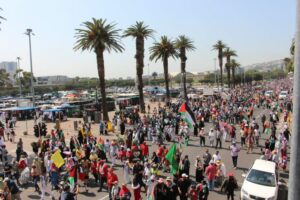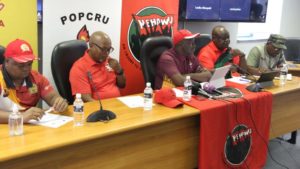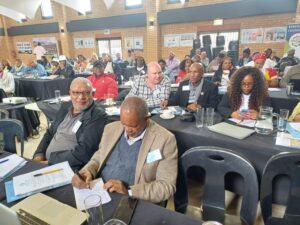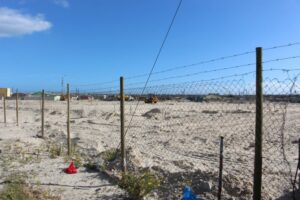Xenophobia continues to rear its ugly head in South Africa as Operation Dudula carries out attacks on “illegal migrants” in Gauteng. People organised under the banner of this brown-shirt movement spew hatred towards foreign nationals causing immense pain and suffering. On Human Rights Day this week, a group of organisations, activists and African nationals marched to parliament to demand the immediate arrest and prosecution of those who perpetrate violence against foreign nationals.
The Kopanang Africa Against Xenophobia march making its way to parliament to deliver a memorandum of demands.
The Johannesburg leg of the march had been scheduled for Human Rights Day as well but it was prohibited by the Johannesburg Metropolitan Police Department. After successfully overturning the prohibition, the march organisers, Kopanang Africa Against Xenophobia (KAAX) rescheduled the march to 26 March.
23 organisations in the coalition against xenophobia took part in drafting the statement and demands that were delivered to parliament.
The South African constitution condemns discrimination against anyone based on sexual orientation, religion, gender identity and nationality within the country’s borders. Furthermore, South Africa, according to the KAAX statement, has an international duty as a member of the United Nation (UN) and the African Union (AU) to ensure the safety of all individuals present in South Africa.
The protesters sit down as they make their way to parliament
The Refugee Reception Offices (RROs) have been closed and the online system set in place does not assist those who do not have access to digital devices. Therefore, the protesters demand the reopening of the RROs to reduce the risks refugees face getting ‘documented’ at the only refugee reception office left open in the country, in Pretoria.
One of the demands of the protesters is for journalists to avoid inflammatory and sensational reporting that may incite hatred.
Lack of knowledge is one of the root causes of the simmering violence, leading to KAAX’s call on government to educate South Africans about asylum seekers, refugees, and migrants’ rights, and its responsibilities to address the conflict between host communities and immigrants.




